NIL
Revenue Sharing Could Boost Programs in Football’s Shadow
Revenue Sharing Could Boost Programs in Football’s Shadow Privacy Manager Link 1
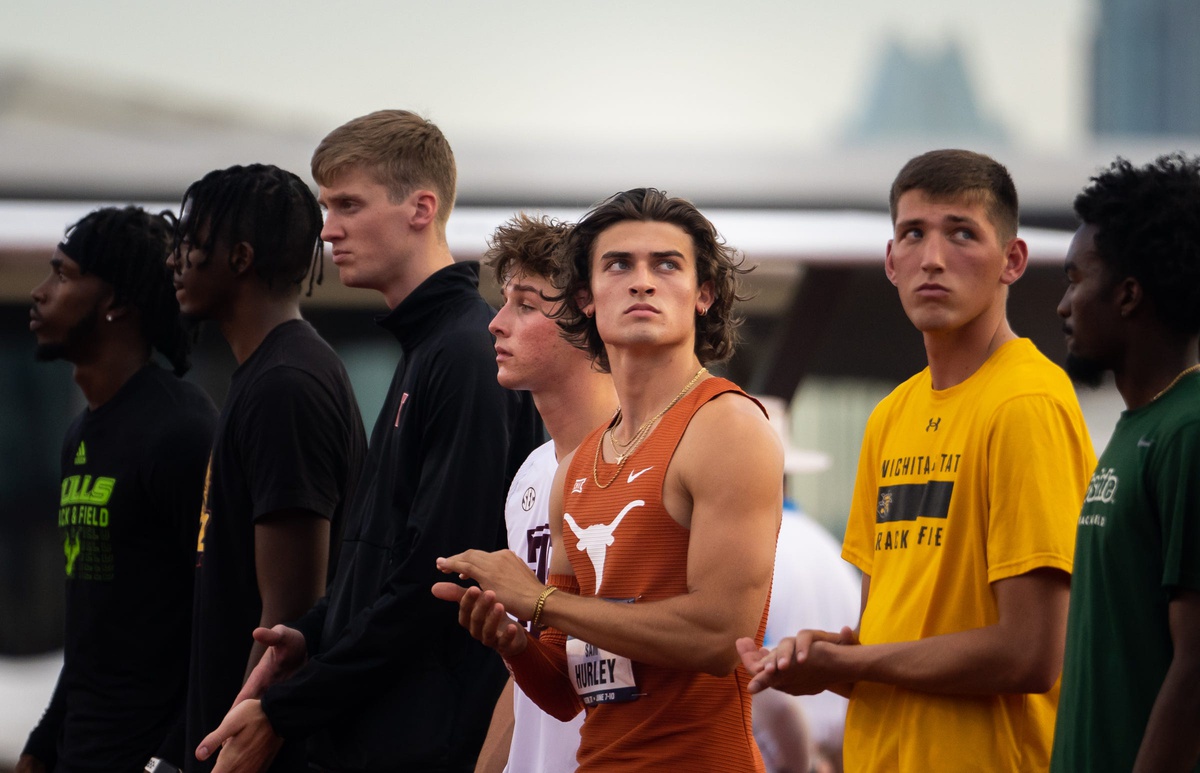
NIL
What Jay Paterno’s bookshelf teaches about NIL, revenue-sharing, and college football
A bookshelf, among the trinkets and clutter that we have nowhere else put, contains stories and memories; some our own, some passed down from family members or legends, immortalized for the words they wrote or the many written about them. Sometimes those legends are family. A bookshelf is where Jay Paterno keeps Steve Spurrier’s visor […]
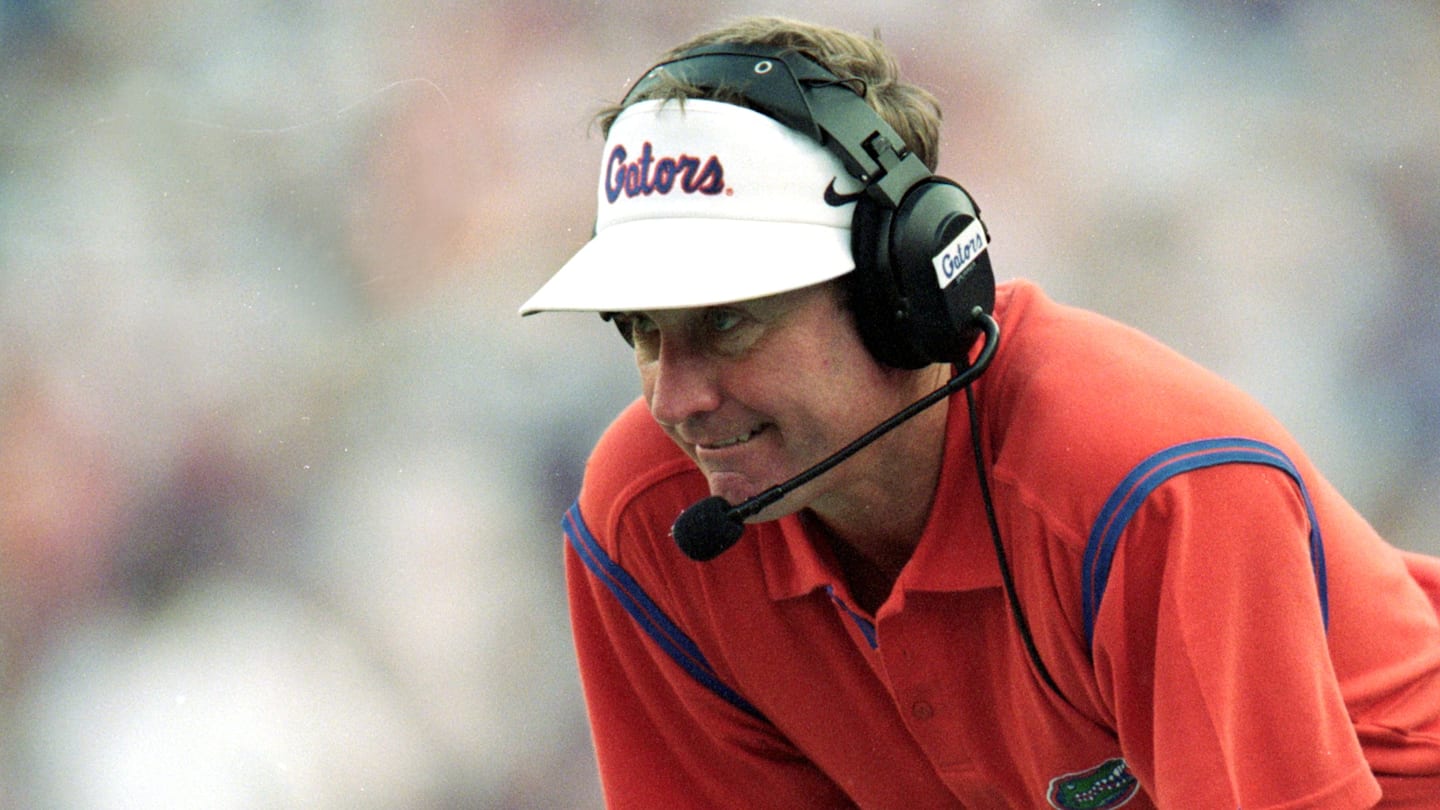
A bookshelf, among the trinkets and clutter that we have nowhere else put, contains stories and memories; some our own, some passed down from family members or legends, immortalized for the words they wrote or the many written about them.
Sometimes those legends are family. A bookshelf is where Jay Paterno keeps Steve Spurrier’s visor from the 1998 Citrus Bowl, the same place that his father, Joe, once kept it after losing that game, and a friendly wager with his friend that required him to wear it off the field.
Penn State had national championship aspirations that season and was the No. 1 or 2-ranked team in the country until a Week 11 loss to Michigan and a Week 14 loss to Michigan State.
The Nittany Lions settled for the Citrus Bowl meeting with Florida, which also spent time at No. 1 that year. Paterno and Spurrier, who were close friends, agreed that if Penn State won, Spurrier would wear Paterno’s glasses off the field, and if Florida did, Paterno would have to wear the visor.
The visor, white with the script “Gators” across the front in blue with orange piping, served as an important mnemonic for Joe and a lesson that still echoes in his son’s head.
“Going into that game, we had a couple of players that were eligible to play, but had kind of broken some team rules, and Joe left them home,” Paterno, then the tight ends and running backs coach on his father’s staff, recalled in an exclusive interview with Soaring to Glory. “Joe took that visor and always had it inside of his bookshelf at home because it was a reminder that he was willing to potentially risk losing a football game to try to do the right thing for the general health of the program.”
Paterno still plays a role in overseeing the health of Penn State football, as a member of the Board of Trustees, but his latest endeavor concerns the health of college football writ large.
Paterno is the author of Blitzed!: The All-Out Pressure of College Football’s New Era. A story that follows fictional Ohio State head coach Ed Hart as he navigates the increased demands and new challenges of the NIL and transfer portal era, based on real stories. Stories about how coaches with bags of cash and a handgun quickly became legitimate financial agreements, and every way in which the job is different from when his father did it for 46 years in Happy Valley.
“Recruiting has always been a big deal, but recruiting now is identifying high school talent, identifying talent at other schools that’s entering the transfer portal, but also recruiting your own players to stay on your roster,” Paterno said, echoing a common refrain from frustrated coaches who have either left the sport, or like Chip Kelly and Jeff Hafley, resigned from head coaching jobs to become coordinators either in the college ranks or the NFL.
However, Paterno, contrary to the message that many college football doomsday preppers began to trumpet when Kelly left UCLA and Hafley left Boston College, doesn’t foresee any mass exodus from college football coaching, or even many other coaches viewing the NFL as a life raft off NIL island.
“I think as long as we’re paying college coaches the kind of money that we’re paying them right now, head coaches, I think there’s going to be a real incentive for them to stick it out,” Paterno said, tongue planted firmly in cheek. “When you talk about the business model of college football, you have some head coaches at schools making 10 percent of total revenue of the program, not profit, but revenue. That’s hard to find in any business anywhere in the world.”
And what does that money buy? Well, in many cases, some of the best rule breakers (or evaders if you don’t get caught), in sports.
“As a coach, your job is constantly to find loopholes. Ohio State has a certain type of defense, I have got to find a hole in that defense, if the NCAA passes a certain rule as it relates to NIL, I have got to find what I can do that’s not forbidden… We’re going to see some very creative stuff because this profession does attract some very creative minds.”
Creativity is a necessity in the profession, even for a fictional character like Coach Hart leading the Buckeyes. Because even within the pages of Paterno’s college football fantasy, winning is everything.
“Let’s be realistic about what we’re dealing with here. We’re dealing with a bunch of people for whom winning at all costs carries a significant financial reward,” Paterno acknowledged, addressing the perpetual line-stepping throughout the history of the sport. “We’re not giving coaches big six-figure bonuses if they graduate 85 percent of players.”
While he’s taken a coach’s perspective throughout the book, if you’re searching for sympathy for the most highly-paid figures in the sport, look elsewhere. Paterno is a vocal advocate of the players and their involvement in solving college football’s most existential issues.
There aren’t many people involved in modern college football as connected to the sport in its previous form as the son of a man who coached from 1966 until 2011, and Paterno, like many traditionalists, is not a fan of the “implosion of the amatuer model” as he calls it in the description of his book. But that may be the only part of the issue where he and other old-school college football minds find common ground.
“We need to be realistic about what we’re doing here,” Paterno said, referencing the boom in television contracts and revenue generated by the Power Conferences and NCAA’s major events like March Madness. “This is not an extra-curricular activity that guys come to school to play for ‘Dear Old State’ or whatever it may be.
“This has become a business, and when you start talking about coaches making the kind of money that they’re making – I think the one thing I would change is with the revenue-sharing, I think coaches’ salaries should come down and revenue sharing for players in all the sports should come up, but I don’t think that’ll happen anytime soon.”
Revenue-sharing is the latest monkey wrench thrown into college athletics, part of the House vs. NCAA settlement that went into effect on July 1, 2025. The settlement allows schools to pay athletes directly from a pool of revenue-sharing money that in Year 1 will total about $20.5 million.
It’s the result of three federal antitrust lawsuits that claimed the NCAA was illegally limiting the earning power of college athletes. It also requires the NCAA to pay $2.8 billion in back damages to athletes from 2016 through the time of the settlement, over the next 10 years.
It’s a step in the right direction, but Paterno and many of its detractors agree that it’s merely a half measure. He believes that college football needs something more… revolutionary.
“It’s time for a constitutional convention,” Paterno said. Like the visor that loomed large over his right shoulder, a bit of history informing his vision for the future of college football. “The governing bodies of these schools should be part of this process, as should student-athletes. When you look at the College Football Playoff, every year they make changes, and the student-athletes aren’t at the table to say, ‘wait a minute, maybe we don’t want to play four more games or five more games without getting a chunk of the money.”
Then, like a true former college football coach, Paterno proceeded to find every potential loophole in the current deal; the state laws that can override its validity, the future lawsuit from a new star player who wasn’t represented in these class action suits, who doesn’t want their earning power artificially capped by this agreement, and the old-fashioned bags of cash that could make their triumphant return to the sport to skirt the NIL clearinghouse.
Then, Paterno addressed the elephant that has wedged itself into every room where the future of college football is discussed.
“I think collective bargaining has to show up. I think it’s going to happen. They’re going to have to be treated as employees. Let’s be realistic about that,” Paterno said. “You’re giving somebody a 1099 form for $1.5 million to play football at your school, it’s hard to argue that they’re not employees.”
Paterno’s fictional Coach Hart may not make the same argument, but for someone so entrenched in the history of the sport, Paterno is uniquely pragmatic about its future. Coaches must adapt, and players deserve more power. Most of the powers in college football will resist these necessary changes as long as they can. Instead, maybe they should take a lesson from the Paternos and Spurriers’ famous visor, and sacrifice this game for the long-term health of the sport.
NIL
Colorado’s Deion Sanders says NIL spending decides who makes the College Football Playoff at Big 12 Media Days
Deion Sanders is never short on opinions, and during Wednesday’s Big 12 Media Days in Dallas, the Colorado head coach had plenty to say — from the state of his program to his expectations in year two. But it was his unfiltered take on the current landscape of NIL in college football that stole the […]
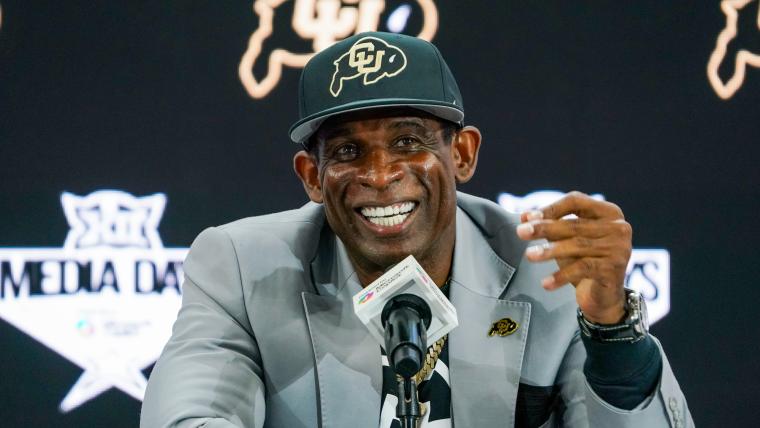
Deion Sanders is never short on opinions, and during Wednesday’s Big 12 Media Days in Dallas, the Colorado head coach had plenty to say — from the state of his program to his expectations in year two. But it was his unfiltered take on the current landscape of NIL in college football that stole the spotlight.
“I wish it was capped,” Sanders said when asked how he would regulate NIL (via Ari Meirov). “You know, like, the top of the line player makes this, and if you’re not the type of guy, you know you’re not going to make that. That’s what the NFL does.”
Advertisement
Sanders, who has embraced the new era of athlete compensation, wasn’t complaining about players making money — but he made it clear that the lack of structure is turning college football into a financial arms race.
“The problem is, you got a guy that’s not that dern good and he could go to another school and they give him a half-a-million dollars and you can’t compete with that.”
That sentiment quickly escalated into a broader critique of the sport’s competitive balance. Sanders pointed directly at the College Football Playoff as a reflection of where the money is going — and who it’s benefitting.
“All you gotta do is look at the College Football Playoff and see what those teams spent, and you’ll understand darn well why they’re in the playoffs,” he said. “It’s kind of hard to compete with somebody who’s given 25–30 million to a dern freshmen class.”
Advertisement
“What’s going on right now don’t make sense. And we want to say stuff but we’re trying to be professional. But you’re going to see the same teams, darn near at the end… But the teams that pay the most are going to be there in the end.”
It’s not the first time Sanders has called out structural flaws in college football. And it won’t be the last. While his Buffaloes have drawn national attention for flashy moves and media buzz, they’ve yet to match that with postseason results — finishing 9-4 last season and bowl loss to BYU.
And though Sanders touched on a wide range of topics Wednesday, including the quarterback competition between Kaidon Salter and JuJu Lewis, it was his NIL comments that cut deepest.
Sanders’ frustration isn’t just philosophical. As he tries to rebuild a winner in Boulder, he’s competing against schools with NIL budgets that may dwarf Colorado’s. And in his view, that’s leading to a college football hierarchy that’s no longer about coaching or culture — it’s about cash.
As always with Coach Prime, the message was clear. Now it’s up to the rest of college football to decide whether to keep spending — or start listening.
NIL
War Rapport Wednesday: Auburn’s relief to be a Nike School and the impact of ‘NIL Go’
In this week’s War Rapport Wednesday, WRBL’s Rex Castillo and The War Rapport’s Mike Gittens talk about the excitement and relief student-athletes have since Auburn officially became a Nike School. Many athletes have complained about the quality of equipment they were issued when the Tigers were contracted to use Under Armour Gear. Also there’s a […]
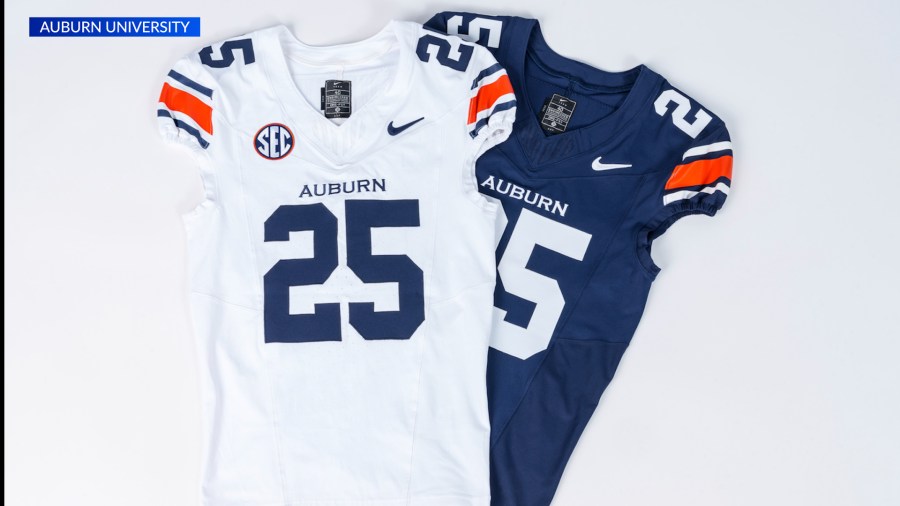
In this week’s War Rapport Wednesday, WRBL’s Rex Castillo and The War Rapport’s Mike Gittens talk about the excitement and relief student-athletes have since Auburn officially became a Nike School. Many athletes have complained about the quality of equipment they were issued when the Tigers were contracted to use Under Armour Gear.
Also there’s a massive shift coming to college sports, when NIL Go will officially be in charge of overseeing almost all deals that college student athletes agree to. NIL Go, will be a clearing house organization that will add more scrutiny over any NIL deal that’s worth $600 or more. NIL Go will be run by Deloitte, a multinational professional services network, that provides audit and assurance, financial consulting and advisory services. Their big role is to also ensure that all NIL Deals are above board and that NCAA universities stick to the $20 million dollar cap which was decided on in the massive House Settlement last month.
Advertisement
Rex Castillo and Mike Gittens also talked about the House settlement, which allows universities to pay their athletes directly. You can view that episode here
Copyright 2025 Nexstar Media, Inc. All rights reserved. This material may not be published, broadcast, rewritten, or redistributed.
For the latest news, weather, sports, and streaming video, head to WRBL.
NIL
Illini Soccer Unveils 2025 Non-Conference Schedule
Story Links CHAMPAIGN, Ill. – Illinois soccer head coach Katie Hultin announced the team’s non-conference schedule on Wednesday (July 9) featuring nine matches with three of them at Demirjian Park in her first year at the helm. The Fighting Illini prepare for the regular season with a pair of exhibition matches, […]
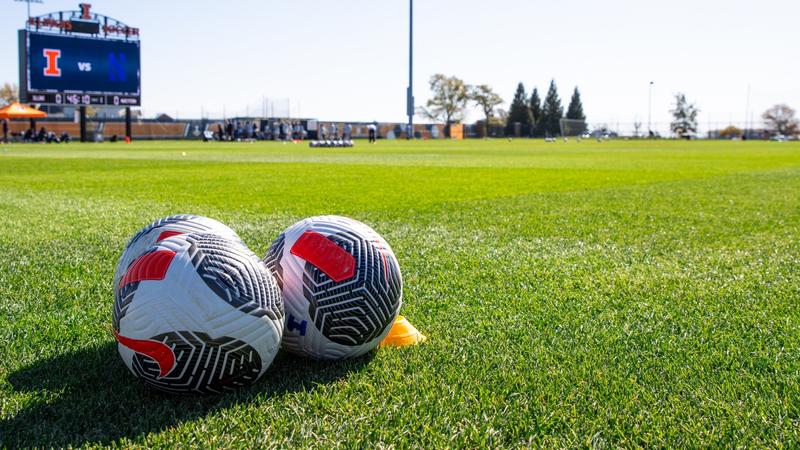
CHAMPAIGN, Ill. – Illinois soccer head coach Katie Hultin announced the team’s non-conference schedule on Wednesday (July 9) featuring nine matches with three of them at Demirjian Park in her first year at the helm.
The Fighting Illini prepare for the regular season with a pair of exhibition matches, the first against Marquette at home on Aug. 7 and the next on the road at IU Indianapolis on Aug. 10.
The Orange and Blue begin the regular season with two road trips. First, a trip up north to Chicago to take on UIC in the season opener on Aug. 14 before they head east to face the Bowling Green Falcons on Aug. 17.
Illinois’ home opener will be on Aug. 25 against Boston College before their three-match road trip beginning with DePaul on Aug. 28, Kentucky on Aug. 31 and ending with Missouri on Sept. 4.
The Illini close out non-conference play with a home match against Valparaiso on Sept. 7.
2025 FIGHTING ILLINI SOCCER NON-CONFERENCE SCHEDULE
All Times Central
Thursday, Aug. 7 – vs. Marquette (Exh.) – 6 PM
Sunday, Aug. 10 – at IU Indy (Exh.) – 1 PM
Thursday, Aug. 14 – at UIC – 6 PM
Sunday, Aug. 17 – at Bowling Green – 1 PM
Monday, Aug. 25 – vs. Boston College – 6 PM
Thursday, Aug. 28 – at DePaul – 4 PM
Sunday, Aug. 31 – at Kentucky – 1 PM
Thursday, Sept. 4 – at Missouri – 7 PM
Sunday, Sept. 7 – at Valparaiso – 1 PM
NIL
These two college football recruiting moves come with massive price tags
The top high school football recruits are demanding lofty Name, Image and Likeness packages as college athletics shifts to the revenue share model following the House settlement. Five-star offensive tackle Felix Ojo made headlines on July 4 after committing to Texas Tech, which signed the highly-coveted prospect to a 3-year, $5.1 million deal, believed to […]

The top high school football recruits are demanding lofty Name, Image and Likeness packages as college athletics shifts to the revenue share model following the House settlement.
Five-star offensive tackle Felix Ojo made headlines on July 4 after committing to Texas Tech, which signed the highly-coveted prospect to a 3-year, $5.1 million deal, believed to be the largest revenue share deal in history.
That agreement seems to be only the first of its kind, though, as more top recruits have reportedly inked similar deals to Ojo’s.
According to On3’s Pete Nakos, elite wide receivers Boobie Feaster and Calvin Russell Jr. have agreed to multi-million dollar NIL deals after announcing their commitments last week.
Feaster committed to the USC Trojans on July 4 over Alabama, Texas A&M and LSU. The 6-foot-1, 180-pound receiver out of DeSoto, Texas, ranks as the No. 5 wideout in the 2026 class.
Syracuse beat out Michigan, Florida State and Oregon to land Russell (6-foot-6, 190 pounds). A five-star recruit and the No. 4 receiver in the 2026 class, Russell is the third highest-rated commit in Syracuse history.
“The top-50 recruits are rumored to have agreed to multi-year deals valued in the multi-million-dollar range,” Nakos wrote on Wednesday.
NIL collective around the country were looking to reset the high school market to a more sustainable reality. However, that effort has “not held up,” per the report.
“It is 1,000% more difficult to win a recruitment than it was two years ago,” an SEC NIL collective operator said via On3. “Everyone is aware that it’s critical. So many people two years ago thought some elements of this were fake and not as important as it is.”
NIL
The House Settlement: College Athletics Panacea or Pandora’s Box?
On June 6, 2025, U.S. District Judge Claudia Wilken of the Northern District of California approved a settlement allowing NCAA schools to pay student-athletes in an agreement now simply known as the House Settlement. The House Settlement directly resolved outstanding antitrust lawsuits arising out the NCAA’s compensation system for the use of a student athlete’s […]

On June 6, 2025, U.S. District Judge Claudia Wilken of the Northern District of California approved a settlement allowing NCAA schools to pay student-athletes in an agreement now simply known as the House Settlement. The House Settlement directly resolved outstanding antitrust lawsuits arising out the NCAA’s compensation system for the use of a student athlete’s name, image and likeness (NIL) by universities and colleges, namely House v. NCAA, Hubbard v. NCAA and Carter v. NCAA.
-

 Technology2 weeks ago
Technology2 weeks agoPet fitness and wellness trends for a healthier and happier dog
-

 College Sports2 weeks ago
College Sports2 weeks agoWAC to Rebrand to UAC, Add Five New Members in 2026
-

 Motorsports1 week ago
Motorsports1 week agoWhy Cosmetics are Making Up for Lost Time in Women’s Sports
-
College Sports3 weeks ago
Women's Basketball Thanks Shannon LeBeauf for 14 Seasons
-

 Professional Sports3 weeks ago
Professional Sports3 weeks agoAlex Pereira responds to rumors of UFC heavyweight title fight with threatening message
-

 College Sports3 weeks ago
College Sports3 weeks agoAlabama Basketball
-

 Professional Sports3 weeks ago
Professional Sports3 weeks agoFrancis Ngannou sends Dana White a message following Jon Jones' shock UFC retirement
-

 College Sports2 weeks ago
College Sports2 weeks agoA new era of Dickinson hockey begins behind the bench – The Dickinson Press
-

 Motorsports2 weeks ago
Motorsports2 weeks agoNASCAR This Week – Patriot Publishing LLC
-
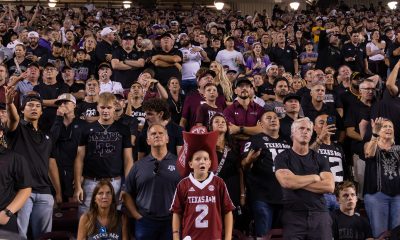
 Sports2 weeks ago
Sports2 weeks agoSEC Conference imposing a fine will create the opposite effect.
































